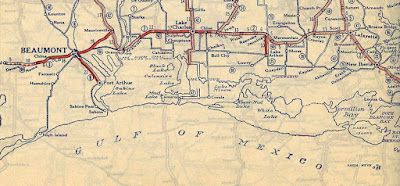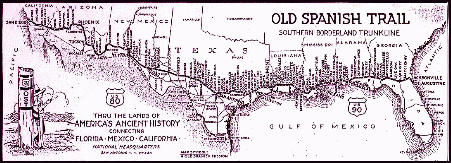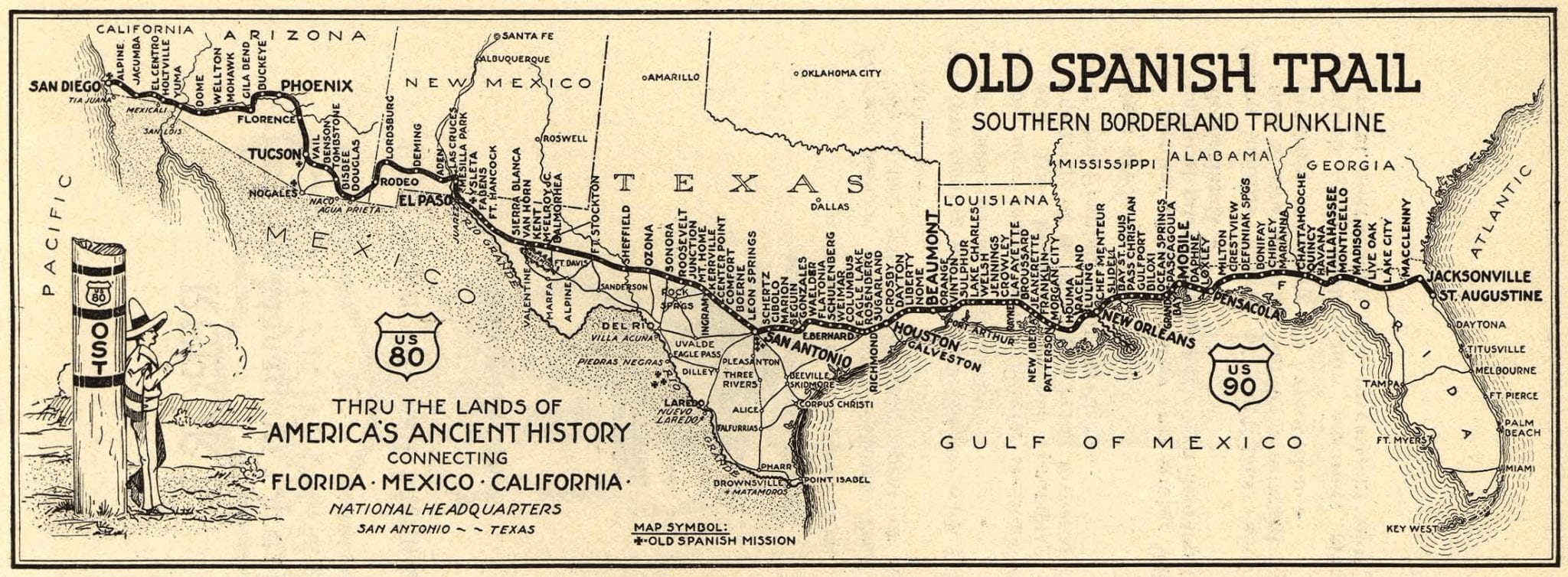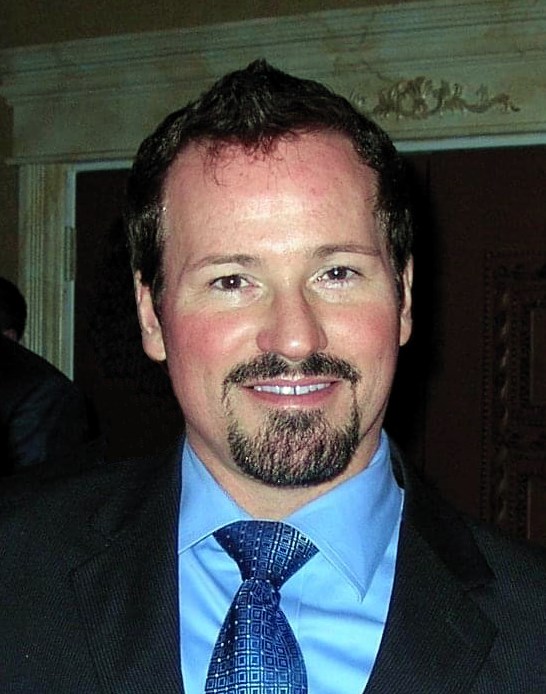WELCOME TO OST100
Old Louisiana embraces the territory from Mobile to Lake Charles. The Louisiana of today is a delta land, the work of ages by the Fathers of Waters. The first settlements naturally would have been on the Mississippi River, but the type of land discouraged it, so the French first planted their colonies along the Gulf coast of what is now the State of Mississippi, then Mobile on the Alabama Bay. Not for twenty years did Governor Bienville succeed in planting that settlement in the Mississippi swamp which those virile people have since made into the great city of New Orleans.
That settlement of New Orleans commanded the Mississippi Valley and the empire northward, eastward and westward, and Louisiana was forever established as the gate-keeper for the restless races that were mingling and mixing in the heart of the North American continent.
The French occupancy of the Mississippi Valley broke the Spanish domination in two. Though Spain in later years held all the Louisiana territory and imposed its work on the French, its blood and language never gained root, and Louisiana survives rich in the exotic character, romance and charm of La Belle France.
The Old Spanish Trail of today cuts thru these lands of Old Louisiana and because France, and Spain, and England, and now the new races that formed northward, at times governed and stamped their type on this country, it is today one of the most romantic on the continent.
The Mississippi River first comes to the attention of the French at Quebec. Their explorations about the Great Lakes gave them the knowledge of a great river leading to the Gulf of the Spaniards at the South. Then La Salle, the empire-builder, went down the river in canoes and claimed the territory for the King of France.
The exploration of La Salle and Tonti (1680-1685) had already indicated the general course of the Mississippi River to the Gulf of Mexico and in 1699 Le Moyne D’ Iberville, in company with his brother Sieur de Bienville, made his way up the Gulf of Mexico and discovered a group of islands, on Candlemas day, and hence they were by him named “Chandeleur” (1.)
They visited what is now known as “Ship Island”, and also an island which owing to the fact that it was swarming with a strange animal, that they did not know, one of the French exclaimed, “This is the Kingdom of Cats” and the island to this day bears that name.

At about this time Iberville entered the Bay of Biloxi where he made a temporary settlement, and on February 27, 1699, he and Bienville left Biloxi and made a trip up the Mississippi River as far as what is now known as Red River, and here he found a letter from Tonti to La Salle, dated 1685, and which had been left with the Bayougoulas (River People.) On their return Iberville went through a lake, which he called Pontchartrain, after Louis Phelypeaux, Count Pontchartrain, a minister of the King and Chancellor of France, and another Lake Borgne (2), and found on the coast line a beautiful bay which they called “Bay St. Louis,” after the patron Saint of France.
After a visit to his fleet at Ship Island he determined to found his settlement and first capital of the Louisiana territory on the Bay of Biloxi. Gayarre writes:
“On the East Side, at the mouth of the bay, as it were there is a slight swelling of the shore, about four acres square, sloping gently to the woods in the background, and to the right and left of which two deep ravines run into the bay. Thus, this position was fortified by nature, and the French skillfully availed themselves of these advantages. The Fort was constructed with four bastions and was armed with twelve pieces of artillery. When standing on one of the bastions which faced the bay, the spectator enjoyed a beautiful prospect. On the right, the bay could be seen running into the land foe miles, and on the left stood Deer Island, concealing almost entirely the broad expence of water which lay beyond. Sauvolle, a brother of Iberville, was put in command, and Bienville, the youngest of the tree brothers, was appointed his Lieutenant.”
Bienville paid a visit to the fleet, and after resting there several days paid a visit to the Pascagoula River, and on the 13th of July 1699, he makes the following entry in his Journal: “The chief of the Pascagoula came to sing the peace calumet to us. He had in his following seven men of the same nation. I have never seen savages less embarrassed.”
He states that he visited the villages of the Pascagoulas, Biloxi, and Moctobi, which were some 16 leagues inland on the Pascagoula River. It was on this memorable journey that Bienville heard “The Mysterious Music of the Pascagoula,” (3) which foe more than a century has been celebrated in song and story. Gayarre writes:
“During that summer (1727) Governor Periere, leaving New Orleans, visited the first settlements of the French at the bay of St. Louis, Pascagoula and Mobile. While among the Pascagoulas, or bread eaters, (4) he was invited to the mouth of the river of that name, to listen to the mysterious music which floats on the waters, particularly on a calm moonlight night, and which, to this day, excites the wonder of visitors. It seems to issue from the caverns or grottoes in the bed of the river, and sometimes ascends from the water under the very keel of the boat which contains the inquisitive traveler, whose ear is strikes as the distant concert of a thousand Aoelian harps. On the banks of the river close to the spot where the music is heard, tradition says there existed a tribe different in color and in other peculiarities from the rest of the Indians. Their ancestors had originally emerged from the sea, where they were born, and were of light complexion, they were a gentle, gay, inoffensive race, living chiefly on oysters and fish, and they passed their time in festivals and rejoicings. They had a temple in which they adored a Mermaid. Every night when the moon was visible, they gathered around the beautifully carved figure of the mermaid, and with instruments of strange shapes, worshipped that idol with such soul-stirring music, as had never before blessed human ears.
“One day, a short time after the destruction of Mauvilla, or Mobile, in 1539, by Soto and his companions, there appeared among them a white man, with a long gray beard, flowing garments, and a large cross in his right hand. He drew from his bosom a book, which he kissed reverently, and he began to explain to them what was contained in that sacred little casket.

“One night, when the moon was at her zenith and poured on heaven and earth, which more profusion then usual, a flood of light angelic, at the solemn hour of twelve, when all nature was in repose and silence, there came, on a sudden, a rushing on the surface of the river, as if the still air had flapped into a whirlwind by the myriad of invisible wings sweeping onward. The placid water was immediately convulsed; uttering a deep groan, it rolled several times from one bank to the other with rapid oscillations, and then gathered itself into a towering column of foaming waves, on the top of which stood a mermaid, looking with magnetic eyes that could draw almost everything to her, and singing with a voice which fascinated into madness. The Indian and the priest, their new guest, rushed to the bank of the river to contemplate the super natural spectacle. When she saw them, the mermaid tuned her tones into a still more bewildering melody, and kept chanting a sort of mystic song, with this oft repeated ditty:
‘Come to me, come to me, children of the sea, Neither bell, hook, nor cross shall win you from your queen.’
“The Indians listened with growing ecstasy, and one of them plunged into the river to rise no more. The rest—men, women and children, followed in quick succession, moved as it were, with the same irresistible impulse. When the last of the race disappeared, a wild laugh of exultation was heard; down returned the river to its bed with the roar of a cataract, and the whole seemed to have been a dream. Ever since that time, is heard occasionally the distant music which has excited so much attention and investigation. The other Indian tribes of the neighborhood have always thought that it was the musical brethren, who still keep up their revels at the bottom of the river, is in the place of the mermaid. Tradition further relates that the poor priest died in an agony of grief, and that he attributed this awful event, and this victory of the powers of darkness, to his not having been in a perfect state of grace when he attempted the conversion of those infidels. It is believed also that he said on his death bed, that those deluded pagan souls would be redeemed from their bondage and sent to heaven, if on Christmas night, at twelve o’clock, when the moon the moon shall happen to be at meridian, a priest should dare come alone to that musical spot, in a boat propelled by himself, and should drop a crucifix into the water. But, alas! if this is ever done, neither the holy man nor the boat are the be seen by mortal eyes.”— (Gayarre’s History of Louisiana, Vol. I, page 386.)
No one has been bold enough to attempt to exorcise the spirits of the Pascagoula, and hence the music is to be heard even at this day, men claiming that the East and West Pascagoula Rivers are more interesting with this music than without. (5)
Sauvolle, who had been left as Governor of the Fort at Biloxi, died suddenly on the 22nd day of July, 1701, and was buried there, and shortly afterwards Iberville arrived from France with two ships of the line and a brig laden with troops, and after paying his respects to the memory of his brother, he left Boisbriant in charge of the Fort at Biloxi with twenty men and with the rest he and Bienville moved the capital of Louisiana to the west bank of the Mobile River, near where the city of Mobile, Alabama, (6) now stands.
It was during the time that the capital was at Mobile there occurred in the French colony what is known as the Petticoat Rebellion. A number of French girls had been sent by the Bishop of Quebec to Louisiana as wives for the French Colonists; these girls being mostly from Paris, and missing the white bread that they had been accustomed to in France, rebelled at being made to eat cornbread and threatened to leave the colony in a body.
The capital remained at Mobile until 1718, when Bienville moved it to the right bank of the Mississippi River, and founded the city of New Orleans, which is now and will ever be the metropolis of the South. The city of Pascagoula was founded in 1717 by Colonel Dupont, who built a fort on a lake one mile above the Louisville and Nashville Railroad, which is still standing. He founded the present city of Biloxi—New Biloxi—about 1720.
To give all the romance and history of the Gulf Coast would require more time than at present I can spare and more space than “The Spanish Trail” could give to it.
“Know ye the land of the cypress and myrtle,
Are the emblems of deeds done in their clime,
Where the rage of the vultures and the love of the turtle
Now melt into sorrow, now madden to crime?
Know ye the land of the cedar and vine,
Where the flowers ever blossom, the beams ever shine;
Where the light wings of zephyr oppressed with perfume,
Wax faint o’er the garden of Gulf in their bloom?
Where the citron and the olive are the fairest of the fruit,
And the voice of the nightingale never is mute;
Where the tints of the earth and the hues of the sky,
In color though varied, in beauty may vie,
And the purple of the ocean is deepest in dye:
Where the virgins are as soft as the roses they twine,
And all save the sprit of man is divine?
‘Tis the clime of the Coast; ‘tis the land of the Sun;”
—Bryon’s “Bride of Abydos”
The last two lines of the quotation from Bryon I have slightly altered. In the original they read:
‘Tis the clime of the East; ‘tis the land of the Sun;
Can he smile on such deeds as his children have done?”
(1) Chandeluer: French = Candlemas or Cabdle time, the feast of presentation of Christ in the temple and the purification of the (Virgin?) (2) Lake Borgne. French. Borgne = one eye. That is “one Lake.” Supposed to be so called because the lake is only partly rounded by water, having an opening to the Gulf.



